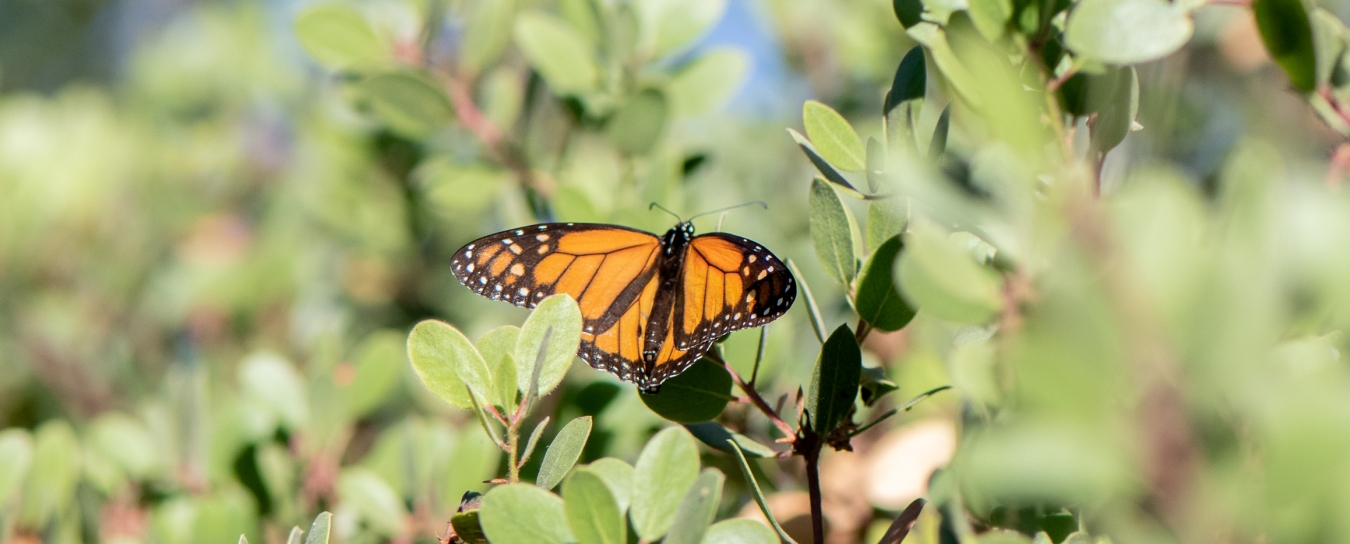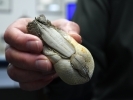
Invertebrates
See our handy guide to critters found in local homes and our Central Coast Butterfly FAQ. Browse the insects and other terrestrial arthropods we’ve identified. Check out local marine invertebrates, particularly bivalve mollusks and intertidal organisms.
- Anthropology
- Rocks & Fossils
- Invertebrates
- Vertebrates
- Botany
- Astronomy
- Fungi
- General
- Recently Asked
Holey Rocks
Hi Curators,
I keep finding rocks on the beach around here with many small, perfectly round holes in them. Is this a human-made thing, or something natural?
Curator Response
Hi Dan,
You are not alone in wondering about this! We get this question a lot. Those are holes left behind by many different species of boring clams that we have along our coast. I study bivalves, so I don’t think any clams are boring, but these particular clams have a rough surface on the front of their shells that make them a little like a drill bit, and they actually bore into the rock by rocking minutely back and forth. You can see some of the drill bit texture in the photo of the specimen here. They also secrete a substance that softens the surrounding rock (without degrading their shell, which is pretty cool if you think about it). Why do they hunker down in the rock like this? Well, when they are deep inside the rock, they’re protected from predators, so that’s probably what makes it a beneficial adaptation.
We have a great diversity of boring clams around here because of how warm currents and cool currents meet at Point Conception, and because of the abundance of Monterey Shale. Shale is a favorite rock for these clams because it is relatively soft.
There’s still a lot we don’t know about boring clams, so if this interests you, the field is wide open for research!
Paul Valentich-Scott, Curator of Malacology


